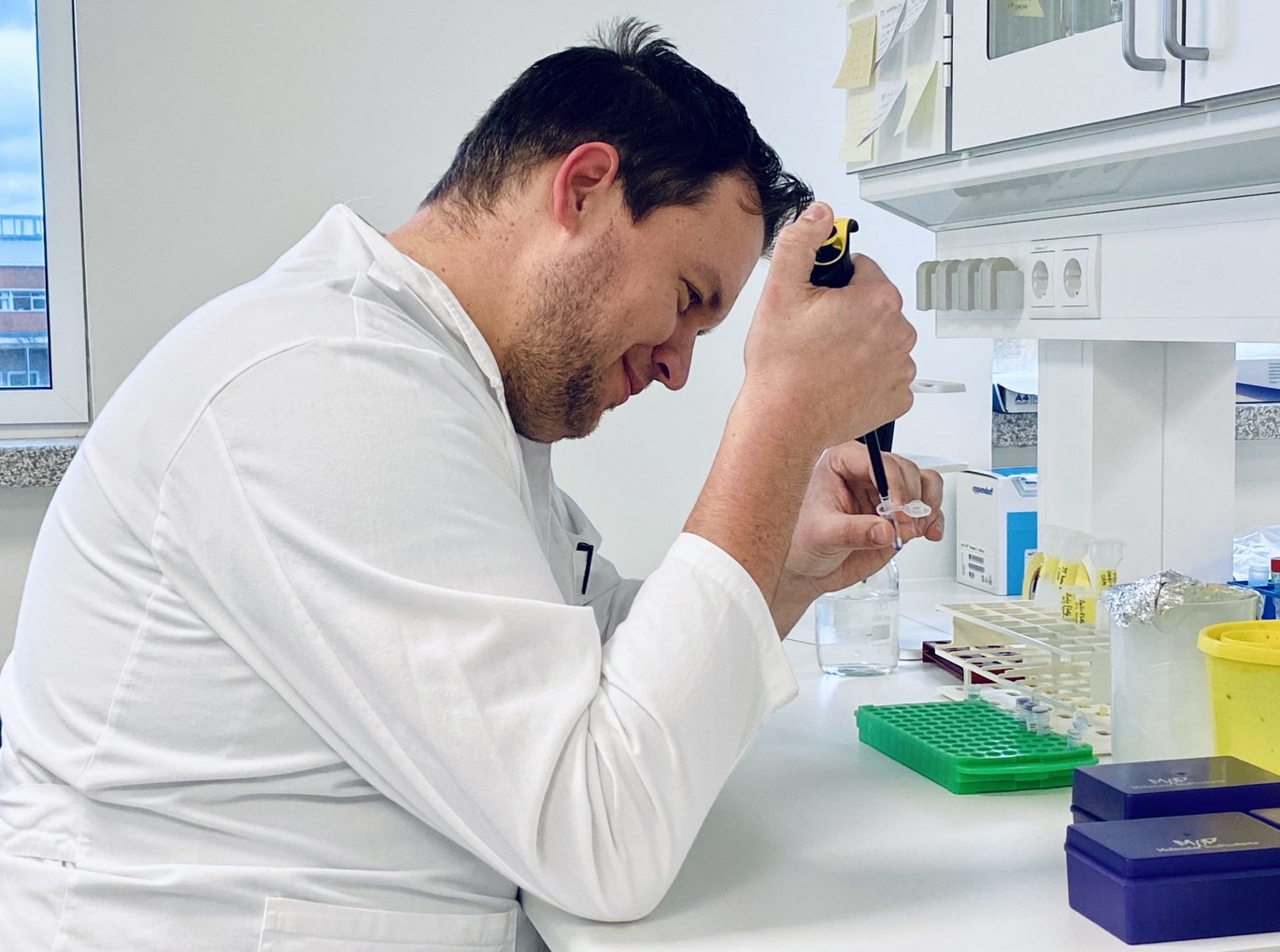“It's healthy that the university is focusing on not using unnecessary energy”
Saving energy requires planning. Experiments have to be timed to be completed within normal working hours. It's more of a hassle than before, but for Rasmus Kock Flygaard from the Department of Molecular Biology and Genetics, the challenges can be solved with better planning.

If you turn up at the Department of Molecular Biology and Genetics (MBG) after 19:00 on weekdays, you’ll find the doors locked and the ventilation turned off. The same applies at weekends – apart from a few hours in the morning. The restrictions have been introduced to reduce energy consumption at the department, although they make things a little more difficult for researchers.
"We have chemicals and other things in our labs, so when the ventilation is off, it’s important people aren’t in the buildings. If one of my experiments reaches the exact stage when I have to take samples at a time when I can't get in, I risk having to start all over again," says Rasmus Kock Flygaard, a postdoc at the department.
Even though this makes everyday life more difficult for him and his colleagues, most of the challenges can be overcome.
"It's healthy that the university is focusing on not using unnecessary energy. Of course, this presents a few more challenges in everyday life, but for my part, most of these can be solved with better planning.”
Preliminary figures show that the faculty's total energy consumption has been reduced by between 10 and 20 per cent compared with last year. At the Department of Molecular Biology and Genetics, the reduction is even greater. “We can be proud of these results,” says David Lundbek Egholm, vice-dean for research.
“We can all give ourselves a pat on the back, because by working together, we’ve really reduced our energy consumption. I know that the energy savings mean a little more hassle around the university, but they’re crucial to our economy.”
Savings are important, but now the limit has been reached
In the laboratory, Rasmus Kock Flygaard is trying to explain how proteins work and what goes wrong when humans become sick. To find out more, he is studying the structure of proteins and the building blocks they consist of. He experiments with cells that grow in petri dishes in laboratories – experiments requiring a couple of days of preparation.
The new energy savings mean that he now has to calculate backwards. It is important that the experiments are ready to be analysed within the new opening hours, and this means that Rasmus Kock Flygaard and his colleagues have to plan when the experiments are to start.
“I’ve been used to working in evenings and weekends, so I need a little time to get used to working within the new framework. Basically, it's probably a good idea to take evenings and weekends off,” he says, pointing out that he and his colleagues have become more aware of their energy consumption.
“All this awareness of our energy consumption has been really good. We’ve looked at our electrical appliances and discarded old appliances with inappropriately high consumption, and we’ve also been able to consolidate our consumption onto fewer devices. As long as we have the necessary functions and the necessary capacity, this is a definite benefit.”
Rasmus Kock Flygaard also emphasises that some of his colleagues do not have the same flexibility.
“Some of my colleagues have a setup where you can’t just turn everything off. For example researchers working with mice, rats and zebra fish. Or at the Department of Physics, where you can't just turn off electron microscopes. I fully support saving energy, but I think the limit has been reached now, if we are to tend to our research as well.”
A few weeks ago, Quacquarelli Symonds ranked Aarhus University as the 15th most climate-friendly university in the world. The survey includes 700 universities, and it measures both social sustainability and environmental sustainability. Topics in the survey include diversity policy, employability and efforts to reduce carbon emissions – but it does not include the current energy-saving measures.
Read more about the ranking.
